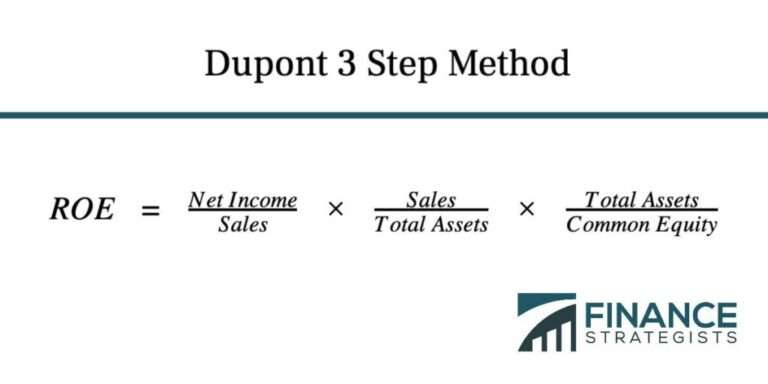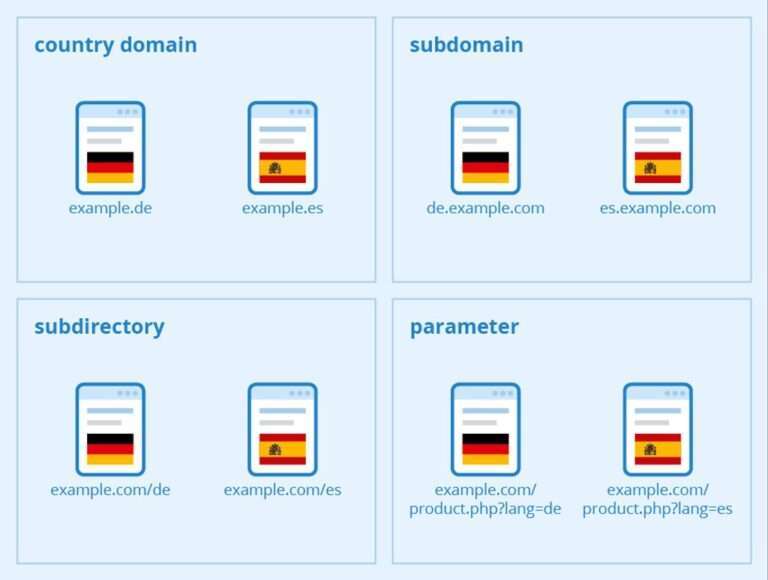What is Content Marketing?
Overview
What is Content Marketing?
Content marketing is a strategic approach to creating and distributing valuable, relevant, and consistent content to attract and engage a clearly defined target audience. It is a way to provide useful information to potential customers, rather than directly promoting a product or service. The goal of content marketing is to build trust, establish credibility, and ultimately drive profitable customer action. By focusing on delivering valuable content, businesses can maximize their impact and create lasting relationships with their audience.
Benefits of Content Marketing
Content marketing offers numerous benefits for businesses. By creating valuable and relevant content, businesses can establish themselves as industry leaders and build trust with their target audience. This can lead to increased brand awareness, customer loyalty, and ultimately, higher conversion rates. Additionally, content marketing allows businesses to educate their audience, providing them with valuable information that can help solve their problems or meet their needs. It also helps in building a strong online presence and improving search engine rankings. Overall, content marketing is a powerful strategy that can drive long-term success for businesses.
Key Elements of a Successful Content Marketing Strategy
When it comes to creating a successful content marketing strategy, there are several key elements that you need to consider. First and foremost, you need to have a deep understanding of your target audience. This means knowing their demographics, interests, and pain points so that you can create content that resonates with them. Secondly, choosing the right content formats is crucial. Whether it’s blog posts, videos, or infographics, you need to select formats that are engaging and align with your audience’s preferences. Lastly, crafting compelling headlines is essential for capturing your audience’s attention and encouraging them to click through to your content. By incorporating these key elements into your content marketing strategy, you can effectively reach and engage your target audience, ultimately driving conversions and achieving your marketing goals.
Creating Engaging Content
Understanding Your Target Audience
To create engaging content that resonates with your target audience, it is crucial to have a deep understanding of who they are. Start by conducting thorough market research to identify their demographics, interests, and pain points. Use this information to create buyer personas that represent your ideal customers. Tailor your content to address their specific needs and interests, and use language and tone that resonates with them. Additionally, consider their preferred content formats and distribute your content through the channels they are most active on. By understanding your target audience, you can create content that truly connects with them and drives meaningful engagement.
| Key Insights |
|---|
| – Conduct thorough market research to identify your target audience’s demographics, interests, and pain points. |
| – Create buyer personas to represent your ideal customers. |
| – Tailor your content to address your target audience’s specific needs and interests. |
| – Use language and tone that resonate with your target audience. |
| – Consider your target audience’s preferred content formats. |
| – Distribute your content through the channels your target audience is most active on. |
Unifire is a powerful content marketing platform that can help you create, distribute, and analyze your content for maximum impact. Sign up today and take your content marketing strategy to the next level!
How to Understand Your Target Audience:
- Conduct market research to gather demographic and psychographic data.
- Create buyer personas based on the research findings.
- Tailor your content to address the specific needs and interests of your target audience.
- Use language and tone that resonate with your target audience.
- Consider your target audience’s preferred content formats.
- Distribute your content through the channels your target audience is most active on.
- Monitor and analyze the performance of your content to continuously improve your strategy.
Choosing the Right Content Formats
When it comes to choosing the right content formats, there are several key insights to keep in mind. First and foremost, it is important to understand your target audience and their preferences. By knowing who you are creating content for, you can tailor your formats to best suit their needs and interests. Additionally, consider the different types of content formats available, such as blog posts, videos, podcasts, infographics, and more. Each format has its own unique advantages and can help you convey your message in different ways. It is also crucial to craft compelling headlines that grab the attention of your audience and entice them to engage with your content. A well-crafted headline can make a significant difference in attracting readers and driving traffic to your website. Lastly, don’t be afraid to experiment with different content formats and analyze the results. By testing and measuring the performance of your content, you can gain valuable insights and optimize your strategy for maximum impact.
Ready to take your content marketing to the next level? Unifire is a powerful tool that can help you streamline your content creation process, increase organic website traffic, and engage your customers through various channels. With Unifire, you can easily turn webinars, podcasts, and workshops into multiple pieces of high-quality content, saving you time and effort. Don’t miss out on the opportunity to dominate your social niche and develop thought leadership with Unifire. Try it out today!
How to Choose the Right Content Formats:
- Understand your target audience and their preferences.
- Explore different content formats available.
- Craft compelling headlines to grab attention.
- Experiment with different formats and analyze the results.
- Consider using Unifire to streamline your content creation process and maximize your impact.
Crafting Compelling Headlines
Crafting compelling headlines is a crucial aspect of content marketing. Dedication to creating attention-grabbing and impactful headlines can greatly increase the chances of your content being noticed and clicked on. A well-crafted headline should be concise, clear, and intriguing, capturing the essence of your content and enticing readers to learn more. It should also incorporate relevant keywords to improve search engine optimization. Additionally, using numbers, asking questions, and creating a sense of urgency can further enhance the effectiveness of your headlines. Experimenting with different headline styles and analyzing their performance can help you identify what resonates best with your target audience. Remember, a compelling headline is the gateway to your content, so invest the time and effort to make it truly captivating.
Promoting Your Content
Utilizing Social Media Platforms
Utilizing social media platforms is a crucial aspect of a successful content marketing strategy. Social media provides a powerful platform for reaching and engaging with your target audience. By creating and sharing valuable and relevant content on platforms such as Facebook, Instagram, Twitter, and LinkedIn, you can increase brand visibility, drive website traffic, and generate leads. It allows you to interact with your audience, build relationships, and establish your brand as a thought leader in your industry. Additionally, social media platforms offer various advertising options to further amplify the reach of your content. By leveraging the power of social media, you can effectively promote your content and connect with your audience on a deeper level.
Building Relationships with Influencers
Building relationships with influencers is a key element of a successful content marketing strategy. By collaborating with influencers in your industry, you can tap into their established audience and accelerate growth for your brand. When selecting influencers to partner with, it’s important to consider their relevance to your target audience and the alignment of their values with your brand. Building genuine relationships with influencers involves engaging with their content, sharing their work, and providing value to them in return. By nurturing these relationships, you can gain access to their network, increase brand visibility, and establish credibility in your industry. To effectively build relationships with influencers, it’s crucial to approach them with a personalized and authentic message, highlighting how a collaboration can be mutually beneficial. By leveraging the power of influencer partnerships, you can amplify the reach and impact of your content marketing efforts.
Optimizing for Search Engines
When it comes to optimizing your content for search engines, there are several key insights to keep in mind. First and foremost, keyword research is essential. By understanding the words and phrases your target audience is using to search for information, you can strategically incorporate them into your content to improve its visibility. Additionally, on-page optimization is crucial. This includes optimizing your meta tags, headings, and URL structure to make it easier for search engines to understand the context and relevance of your content. Another important aspect is link building. By acquiring high-quality backlinks from reputable websites, you can improve your website’s authority and visibility in search engine results. Lastly, performance metrics play a vital role in optimizing your content. By tracking metrics such as organic traffic, bounce rate, and conversion rate, you can identify areas for improvement and make data-driven decisions to enhance your content strategy.
Measuring and Analyzing Results
Setting Key Performance Indicators (KPIs)
When it comes to setting Key Performance Indicators (KPIs) for your content marketing strategy, it’s important to align them with your overall business goals. KPIs provide a measurable way to track the success of your content efforts and determine if you’re reaching your target audience effectively. Some common KPIs for content marketing include website traffic, engagement metrics such as social shares and comments, lead generation, and conversion rates. By setting specific and relevant KPIs, you can evaluate the effectiveness of your content and make data-driven decisions to improve your strategy. It’s essential to regularly monitor and analyze these metrics to identify areas of improvement and optimize your content for maximum impact.
Tracking Engagement and Conversion Metrics
Tracking engagement and conversion metrics is crucial for evaluating the success of your content marketing efforts. By monitoring these metrics, you can gain valuable insights into how your audience is interacting with your content and whether it is driving the desired actions. Some key engagement metrics to track include website traffic, time spent on page, bounce rate, and social media shares. Conversion metrics, on the other hand, measure the effectiveness of your content in driving specific actions, such as newsletter sign-ups, form submissions, or purchases. By analyzing these metrics, you can identify areas for improvement and make data-driven decisions to optimize your content strategy. Unifire provides comprehensive tracking and analytics tools that can help you measure and analyze your engagement and conversion metrics effectively. With Unifire, you can easily track and visualize your key performance indicators (KPIs), identify trends, and make informed decisions to improve your content marketing strategy.
| Metric | Definition |
|---|---|
| Website Traffic | The number of visitors to your website |
| Time Spent on Page | The average amount of time visitors spend on a specific page |
| Bounce Rate | The percentage of visitors who leave your website after viewing only one page |
| Social Media Shares | The number of times your content is shared on social media platforms |
Call to Action:
Ready to take your content marketing to the next level? Sign up for Unifire today and start tracking your engagement and conversion metrics with ease.
How to Track Engagement and Conversion Metrics:
- Set clear goals and define key performance indicators (KPIs) for your content marketing strategy.
- Use analytics tools like Unifire to track and measure engagement metrics such as website traffic, time spent on page, bounce rate, and social media shares.
- Track conversion metrics by setting up goals and tracking events on your website, such as newsletter sign-ups, form submissions, or purchases.
- Regularly analyze your data to identify trends, patterns, and areas for improvement.
- Use the insights gained from tracking and analyzing metrics to optimize your content strategy and drive better results.
- Continuously monitor and adjust your content marketing efforts based on the data to ensure ongoing success.
Analyzing Data to Improve Content Strategy
After creating and promoting your content, it is crucial to analyze the data to improve your content strategy. Analyzing data allows you to gain valuable insights into the performance of your content and make informed decisions for future campaigns. By tracking engagement and conversion metrics, you can identify which content resonates with your audience and drives the most conversions. This data-driven approach helps you understand your audience better and create improved audience targeting strategies. Additionally, analyzing data helps you identify trends and patterns, allowing you to optimize your content for better results. By continuously analyzing and adapting your content strategy based on data, you can ensure that your content marketing efforts have maximum impact.
Measuring and analyzing results is a crucial step in any business strategy. It allows you to evaluate the effectiveness of your efforts and make data-driven decisions. At Unifire, we understand the importance of measuring and analyzing results, which is why we offer a comprehensive suite of tools to help you track and analyze your website’s performance. Our advanced analytics platform provides detailed insights into key metrics such as traffic, conversions, and engagement. With Unifire, you can easily identify areas for improvement and optimize your marketing strategies. Take control of your data and make informed decisions with Unifire. Visit our website today to learn more!







